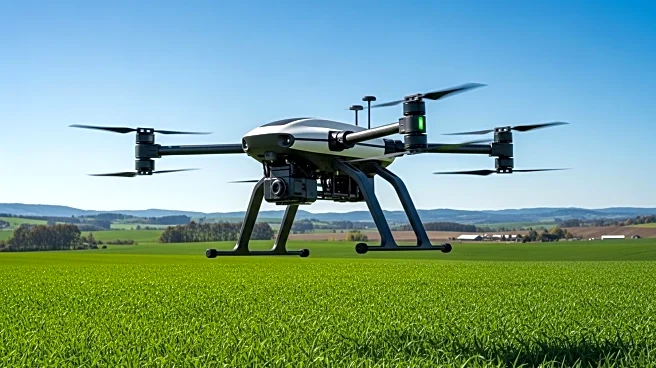What's Happening?
The Indian Council of Agricultural Research (ICAR) has launched the second edition of the Brazil–India Cross-Incubation Programme in Agritech, known as Maitri 2.0, in New Delhi. The event was attended by Dr. M. L. Jat, Secretary (DARE) & Director General (ICAR), and H.E. Mr. Kenneth Nobrega, Ambassador of Brazil to India, along with other officials and representatives from Brazilian research and innovation institutions. Dr. Jat emphasized the longstanding partnership between India and Brazil, highlighting their collaboration in global platforms like BRICS and G20. He noted the significance of the ICAR–EMBRAPA MoU in fostering cooperation across the agri-food value chain. The Maitri 2.0 programme aims to facilitate co-creation between Indian and Brazilian innovators, enhancing the agri-food ecosystem for global food security. Ambassador Nobrega expressed appreciation for the initiative, underscoring its strategic importance in aligning with both nations' vision for cooperation in agriculture, emerging technologies, and food security.
Why It's Important?
The Maitri 2.0 programme represents a significant step in strengthening the agricultural innovation partnership between India and Brazil. By fostering collaboration between innovators, startups, and institutions from both countries, the initiative aims to build resilient food systems and empower farmers. This partnership is crucial for addressing shared challenges such as climate change, food security, and sustainable intensification. The programme's focus on incubator linkages, best practice exchanges, and co-incubation opportunities is expected to drive advancements in sustainable agriculture, digital technologies, and value-chain development. The collaboration aligns with the broader strategic partnership between Brazil and India, enhancing their roles in global agricultural innovation and food security.
What's Next?
The Maitri 2.0 programme will continue to develop incubator linkages and promote co-incubation between Indian and Brazilian innovators. This collaboration is expected to open new opportunities in sustainable agriculture and digital technologies, contributing to the development of resilient food systems. As the programme progresses, stakeholders from both countries will likely explore further avenues for bilateral cooperation in agriculture and emerging technologies. The initiative may also lead to increased commercialization of public-funded innovations, benefiting end-users and enhancing global food security.
Beyond the Headlines
The Maitri 2.0 programme highlights the importance of international collaboration in addressing global agricultural challenges. By leveraging the strengths of both Indian and Brazilian agritech ecosystems, the initiative aims to drive innovation and create sustainable solutions for food security. The programme also underscores the role of public-funded innovations in transforming agriculture into both a livelihood and a business, emphasizing the need for commercialization to deliver benefits to end-users. This collaboration may serve as a model for other countries seeking to enhance their agricultural innovation capabilities through strategic partnerships.








